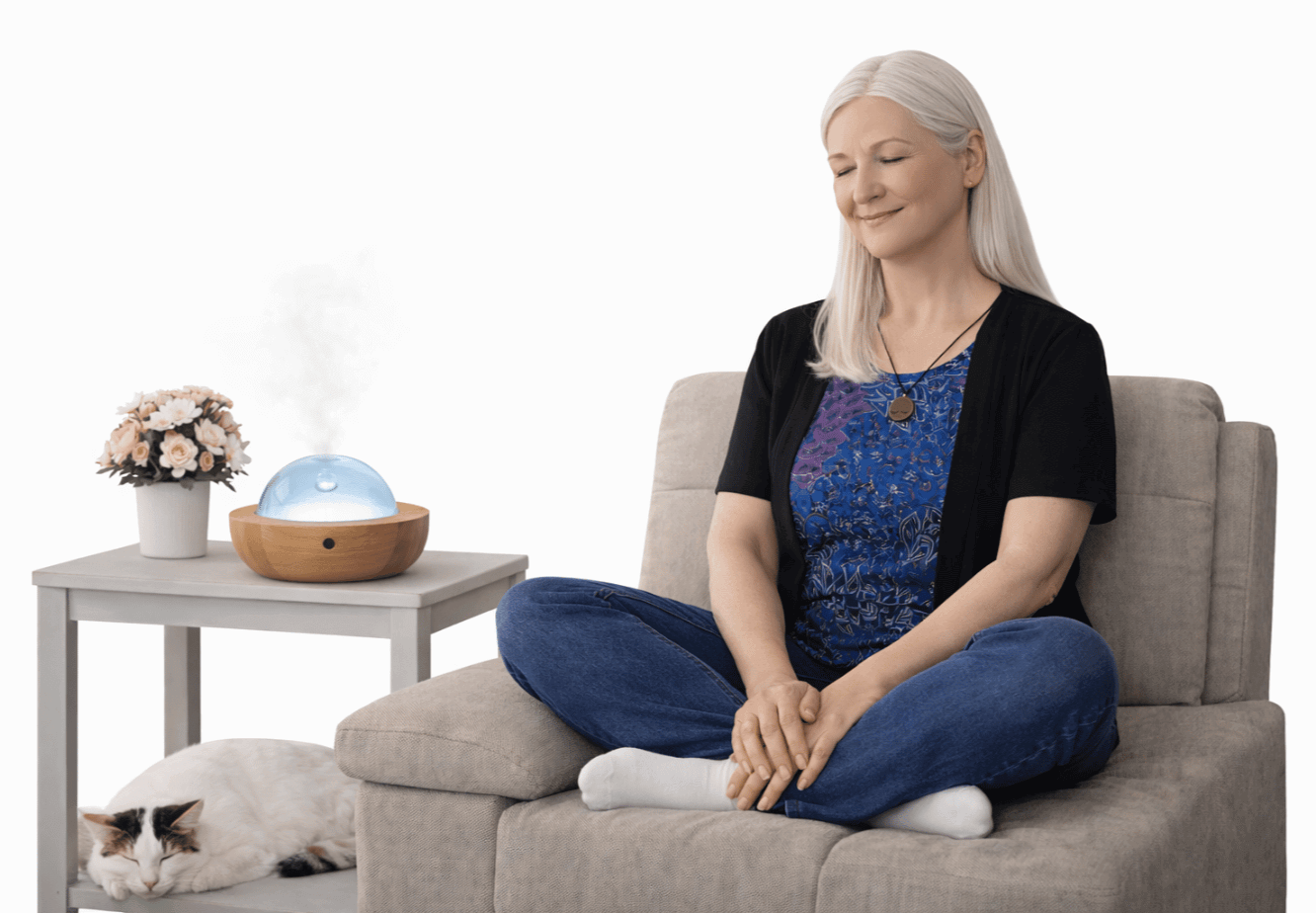
Consider the various elements that can disrupt a restful night's sleep — from work pressures and daily stressors to unforeseen setbacks like illnesses. It's no surprise that achieving truly rejuvenating sleep can be a challenge. Personally, I find that when I haven't enjoyed a deep sleep, everything seems more difficult. Interactions with others, completing tasks, you name it!
While you might not be able to control the factors that interfere with your sleep, you can adopt habits that encourage better sleep. Here are six simple tips that are super helpful!

- Set aside no more than eight hours for sleep. The recommended amount of sleep for a healthy adult is at least seven hours. Most people don't need more than eight hours in bed to achieve this goal.
- Go to bed and get up at the same time every day. Try to limit the difference in your sleep schedule on weeknights and weekends to no more than one hour. Being consistent reinforces your body's sleep-wake cycle.
- If you don't fall asleep within about 20 minutes, leave your bedroom and do something relaxing. Read or listen to soothing music. Go back to bed when you're tired. Repeat as needed.

- Don't go to bed hungry or stuffed. In particular, avoid heavy or large meals within a couple of hours of bedtime. Your discomfort might keep you up.
- Nicotine, caffeine, and alcohol deserve caution, too. The stimulating effects of nicotine and caffeine take hours to wear off and can wreak havoc on quality sleep. And even though alcohol might make you feel sleepy, it can disrupt sleep later in the night.

- Create a room that's ideal for sleeping. Often, this means cool, dark and quiet. Exposure to light might make it more challenging to fall asleep. Avoid prolonged use of light-emitting screens just before bedtime. Consider using room-darkening shades, earplugs, a fan or other devices to create an environment that suits your needs.
- Doing calming activities before bedtime, such as taking a bath or using relaxation techniques, might promote better sleep.
- Start your diffuser and add oils that support sleep.
Here are some of favorites:
First up, is Lavender. This versatile oil is a powerhouse when it comes to calming properties. Its gentle aroma has been used for centuries to promote relaxation for the mind and body.
Next, there's Cedarwood. Not only does this oil possess a warm and woody scent that instantly creates a soothing atmosphere, but it also assists the body in naturally producing melatonin. Melatonin, as you may know, plays a crucial role in regulating our sleep-wake cycle.
Last but certainly not least, I have to mention Frankincense. Prepare to be amazed by the science behind this oil. Frankincense contains a remarkable compound called sesquiterpene, specifically alpha pinene. These components have the unique ability to cross the blood-brain barrier, allowing them to enter brain cells and promote the healing and health of neurons. As a result, Frankincense supports relaxation of the nervous system, enhances focus, concentration, and even contributes to overall brain health. Amazing, isn't it?

- I mean a busy life doesn't usually lend much time for naps, but in case you have the opportunity... long daytime naps can actually interfere with nighttime sleep. If you choose to nap, limit yourself to 30 minutes or less and avoid doing so late in the day.
- If you work nights, however, you might need to nap late in the day before work to help make up your sleep debt.

- Regular physical activity can promote better sleep. Avoid being active too close to bedtime, however.
- Spending time outside every day might be helpful, too.

- Try to resolve your worries or concerns before bedtime. Jot down what's on your mind and then set it aside for tomorrow. I know this is easier said than done but is what you are doing working now? Give it a try.
- Stress management might help. Start with the basics, such as getting organized, setting priorities, and delegating tasks. Meditation also can ease anxiety and Aroma Freedom sessions are amazing. What is Aroma Freedom? Click the button below to learn more.
Nearly everyone has an occasional sleepless night — but if you often have trouble sleeping because of worries, identifying and releasing negative thoughts, feelings, and emotions can help you get the sleep you deserve.

Christian Women Empowerment





















0 Comments